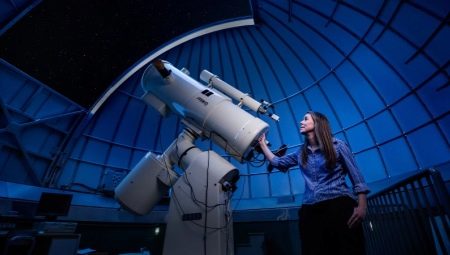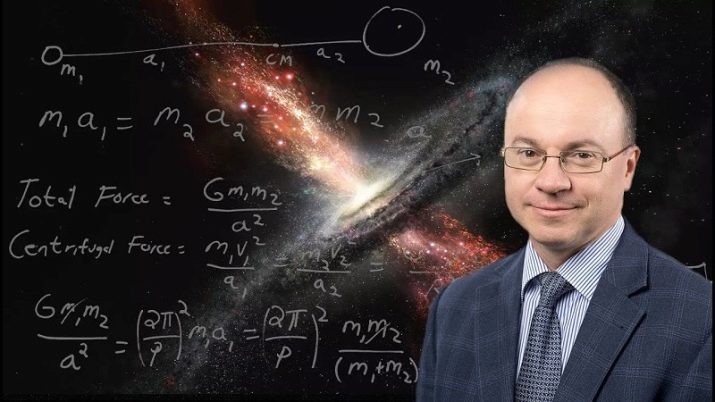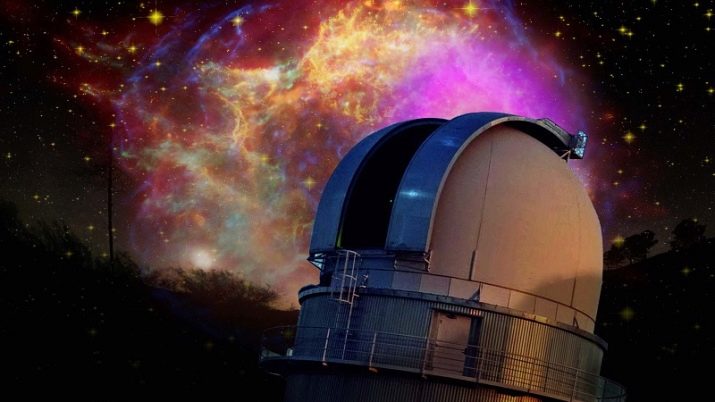All about the profession of astrophysicist

By the name of the profession, it is not difficult to guess which areas an astrophysicist should have. This is a person who deals with the secrets of the Universe and the processes taking place in it.
Who is an astrophysicist and what does he do?
An astrophysicist is a scientist who studies the principles of light, motion, and natural forces as they relate to the universe. He is studying theoretical physics in an effort to learn more about the deep properties of the cosmos. Many astrophysicists specialize in the study of specific phenomena or theories, such as black holes, the development and extinction of stars, the relativity, or the origin of the universe. All past and present cultures have tried to explain the nature of the cosmos and define how humanity came to be. Astrophysicists combine their vast knowledge with observations and provide a modern explanation of the processes in the universe.
Astrophysicists devote a lot of time to research, studying the work of other professors. There is still a lot of unknown or uncertainty in the Universe. Most scientists have to spend all their time and careers in solving just one mystery. For example, many astrophysicists have devoted decades of their professional life to the formation of the Big Bang theory. This concept is actively supported today, but is still not fully understood.
As soon as an astrophysicist discovers something important and of particular importance or forms a theoretical explanation of a particular riddle, he presents his version in a scientific article. Before a new theory is accepted, it is often necessary to face rigorous peer review and rigorous validation by a scientific committee. If possible, the theory is tested in a laboratory setting. They help to confirm the words of an astrophysicist.

Directions
Astrophysicists fall into two broad camps:
- theorists;
- observers.
Observing astrophysicists are already working with the received data. They are designed to structure, test, process them. Theorists are completely immersed in questions of gravity and plasma and rarely deal with particle physics and cosmic rays. They rarely make observations, if they do, it is only in order to check whether the previously modeled graph will pass through those points that were obtained by observing celestial bodies. Both those and others are engaged in the study of specific objects.
There are also the so-called cosmologists, they, on the contrary, are interested in general things, such as the dynamics of the Universe, the emergence, expansion, dark matter.

Responsibilities
The main responsibility that falls on the shoulders of a representative of such an interesting profession is the study of the Universe and space. Each specialist independently chooses a direction for himself and works according to it. If this is a theoretician, then his duties include the construction of mathematical models of the modern world. Teaching requires teaching others.
Astrophysicists use special equipment for their work. Thanks to him, they can not only track celestial bodies, but also explore the collected data, create new theories and explain them from a scientific point of view.
Also, a representative of the profession in question is obliged:
- publish in scientific journals;
- put forward new hypotheses;
- engage in computer modeling, take part in symposia.
Some astrophysicists are studying a specific celestial body, others describe certain processes:
- exploding stars;
- acceleration of cosmic rays;
- gamma flares;
- the formation of new superstars.

What qualities should an astrophysicist have?
To become a good, in-demand astrophysicist, a specialist will have to acquire knowledge in the field of computer programming. This is a person from whom the highest professionalism and knowledge in the field of physics, chemistry, astronomy and mathematics is expected. Astrophysicists are always responsible people, they are familiar with all sorts of equipment and technology. They are required to be able to correctly analyze the received data.
Research work is monotonous, it is important to remain attentive and focused. Sometimes you have to spend a lot of time alone.
Pros and cons of the profession
Everyone who works in the described position speaks of the main disadvantage - the duration of the contract. Most of the vacancies are in universities, so scientists have limited opportunities within the same city, getting a new job usually means moving.
Undoubtedly this job is suitable for those who like to do research activities. An astrophysicist has a lot of time that he spends on what he loves. Studying celestial bodies is always interesting.

How is it different from an astronomer?
An astrophysicist differs from an astronomer primarily in that he does not make observations on his own, but uses the information already received. Astrophysicists spend most of their time programming. People think astronomers spend all their time at telescopes, but that is a very small part of their job. Observations also take a little time for some members of the profession. As soon as a scientist receives new data, he must combine it with others. This is the only way to see the whole picture. After the astrophysicist gives his conclusion, he forms all thoughts in a scientific article.
If an astrophysicist is working on a catalog that is essentially a giant database, it needs to be maintained and updated on a regular basis. In this case, this activity becomes the main one for the astrophysicist.
How to become?
To become an astrophysicist, you must graduate from a higher education institution.
Education
To become an astrophysicist, a person usually needs to obtain a Ph.D. in astrophysics or astronomy. You can study in Russia or graduate from a university abroad. There is a corresponding department at Moscow State University, MEPhI, Moscow Institute of Physics and Technology and other educational institutions. From foreign universities, the University of Hawaii Hilo, which is located in Hawaii, offers to study a profession. In Australia, the Department of Astrophysics is at Macquarie University, in Norway at the University of Oslo, Oslo.
After graduation, an astrophysicist can take up an internship position at a research institution or university. Postdoctoral research programs, which usually last from one to three years, provide an individual with valuable first-hand experience in laboratory and theoretical research methods. Interns learn to apply for grants, write research papers. Most scientists in the field conduct independent research at home or in a private research institution. Some choose to become professors at colleges and universities, where they teach mathematics, physics and astronomy. They can choose to work in a research laboratory.

Possible jobs
The astrophysicist is not very much in demand, so this profession is considered quite rare. But a good specialist will always find a job for himself, since the world of science needs scientists with a new look at space and the processes in it. An astrophysicist can get a job at an observatory, a laboratory where research activities are carried out, a specialized center.
It is prestigious to get a job at NASA or Roscosmos, which is not easy to get to. Here specialists receive a decent salary for their knowledge.
Wage
Salaries, as a rule, vary depending on the city, place of work, employee experience. To find a place of future employment, it is worth looking into the statistics service. There, on average, 135 places are indicated where employees of the described profession are required. The national average salary for an astrophysicist is 27 thousand rubles. The minimum salary is fixed at 18,900 rubles, and the maximum is 92 thousand rubles.
If in Moscow the average salary of an astrophysicist is 36,000 rubles, then in St. Petersburg it is 23,000 rubles. Accordingly, in other cities, this amount may be even less. The experience of the astrophysicist and his skills and abilities are always taken into account.









